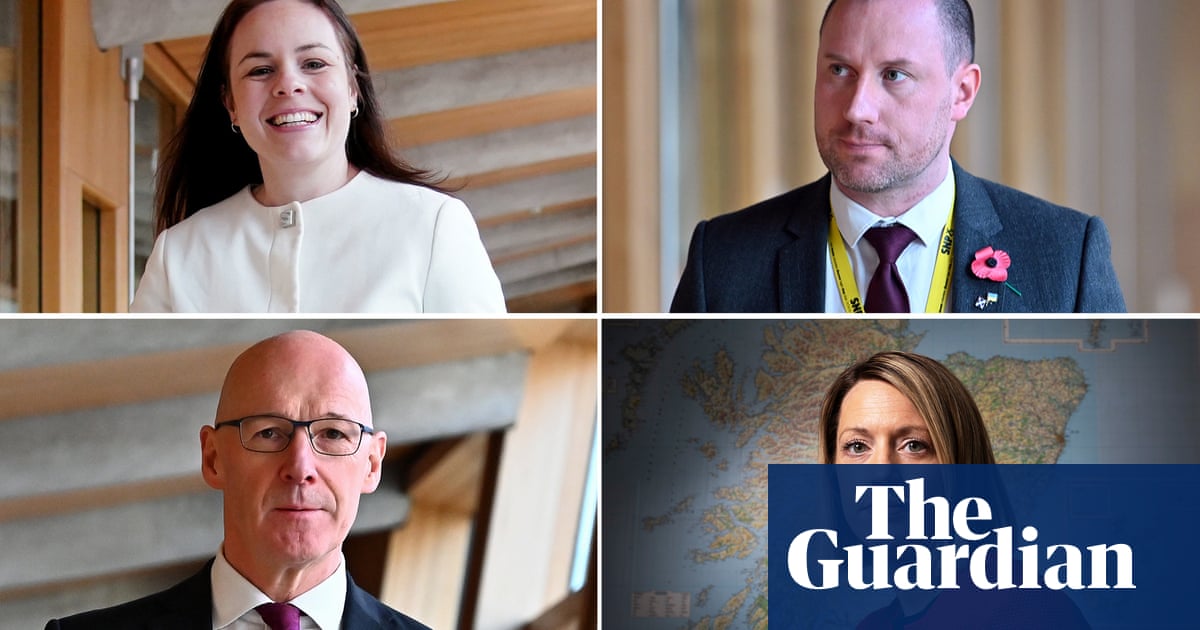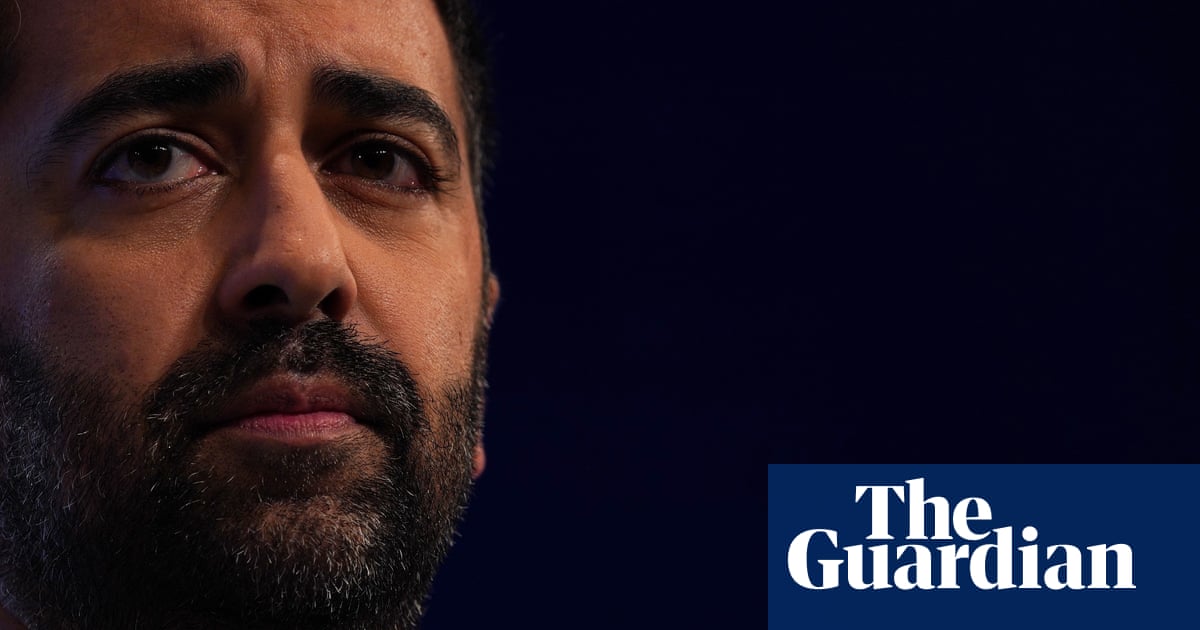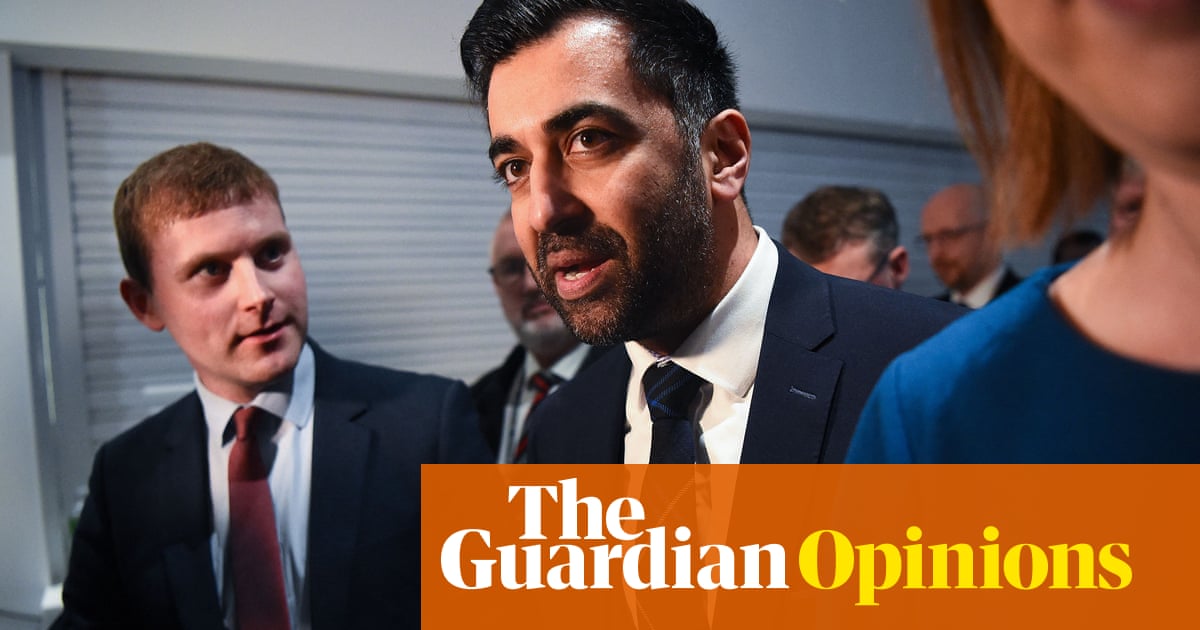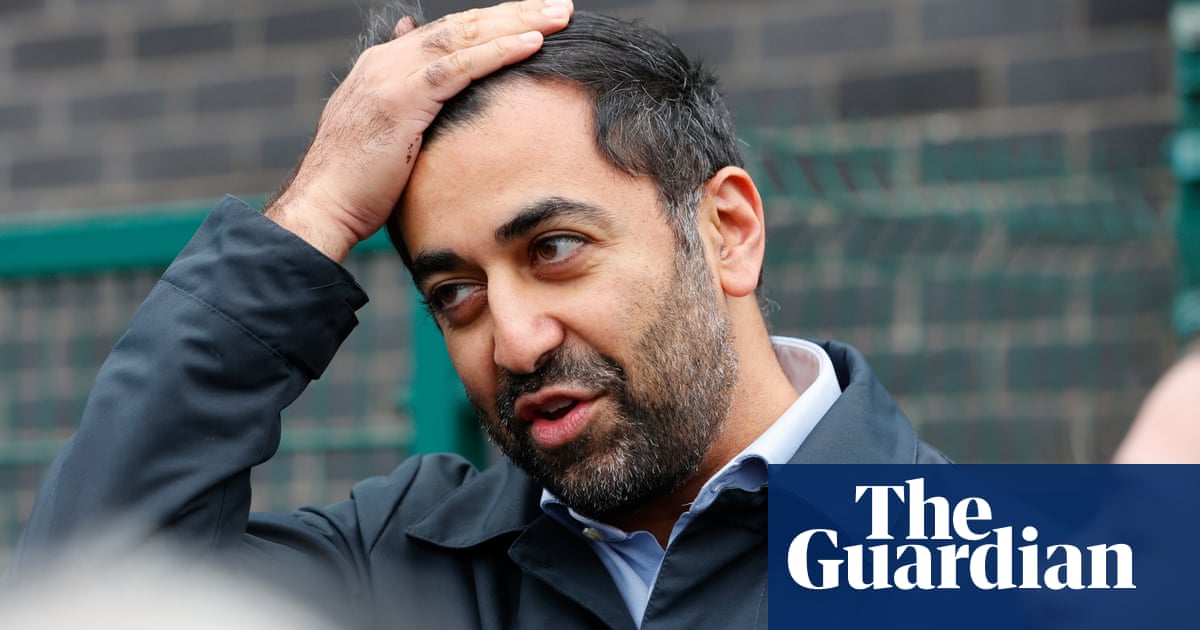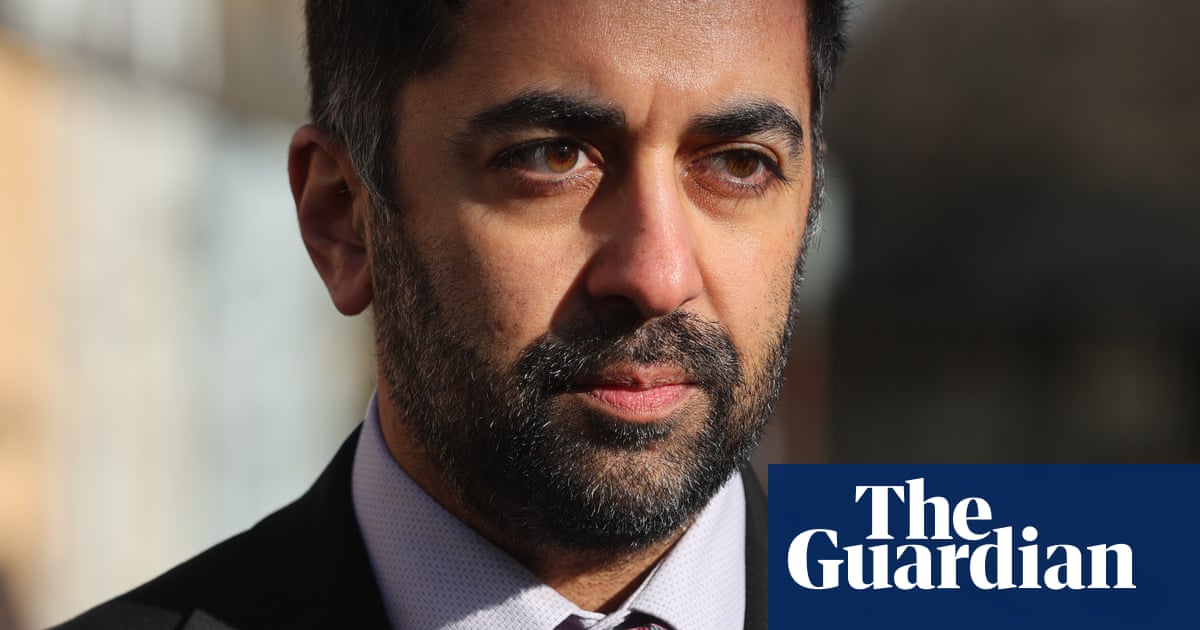
The Scottish National party risks making itself unelectable and losing the core argument for independence if it abandons Nicola Sturgeon’s progressive agenda, one of the frontrunners to succeed her has said.
Agreeing that the party is facing an existential choice as it chooses its next leader, Humza Yousaf laid out the electoral consequences of abandoning the SNP’s “winning formula” in vivid terms at the end of a week of unprecedented bitterness between candidates. His comments came as polling suggests the race between Yousaf and his closest rival, the socially conservative finance secretary Kate Forbes, is too close to call.
“It’s helped us not just to reflect the shared values of the majority of Scots, it’s won us support,” the Scottish health secretary said, arguing that it was through its own progressive policy offering that the party ended Labour’s electoral domination in Scotland. “If we end up lurching to the right, we lose vast swathes of support … and I believe it’s very possible we will not be electable.”
As ballots open on Monday in the party’s first leadership contest for 20 years, Yousaf pointed to his support among young people who joined the party when Sturgeon took control after the loss of the 2014 independence referendum. “We can’t afford to lose them,” he said. “If you lose them, we lose independence.”
Despite the relentless racist and Islamophobic abuse he has encountered since he entered public life, Yousaf believes fundamentally that Scotland is a progressive country, suggesting this is encapsulated in the way that support for equal marriage – first voted through by the Scottish parliament in 2014 – has become “ingrained”.
Amid complaints from Forbes supporters that he has not been similarly interrogated about his beliefs, Yousaf – a practising Muslim who will fast for Ramadan during this campaign – says he has spoken openly about his faith for decades, while repeatedly stating it is “not the basis on which I legislate”. For the record, he confirms his support for equal marriage, gay adoption, a full ban on conversion practices and buffer zones around abortion clinics, all questions to which Forbes has given more guarded responses.
The decision whether to stand to replace Sturgeon – whose resignation left him “gutted” – had to be made within days, he said. “But those days were spent really speaking to my family about the impact it might have. I never will be an absent father, or an absent husband, so it’s about making those boundaries”.
As health secretary, he says, “I work bloody hard,” but his team knows not to disturb him on Monday evenings unless it is absolutely urgent, so he can do bath and bedtime with his three-year-old daughter.
Yousaf entered Holyrood as a regional MSP in 2011, at the age of 26, before winning his Glasgow Pollock constituency in 2016, taking his oath of allegiance in Urdu while wearing a kilt.
The Scottish government’s first and only Muslim cabinet minister, Yousaf has been in charge of some of the biggest departments in the Scottish government and all public service delivery roles, which have brought with them some heavy criticism.
This was brutally summarised by Forbes at an STV debate earlier this week, who claimed that trains were never on time when he was transport secretary; the police were at breaking point when he was justice secretary; and now, as health secretary, the NHS had the longest-ever waiting lists.
When Yousaf hit back that Forbes was “giving our opponents so much ammunition” at a Channel 4 debate on Thursday evening, she said the new first minister would have to “deal with a lot worse”, including standing up to the UK government. But Yousaf is quick to point out that he has negotiated successfully with Westminster for years, most recently over Covid funding.
He insists that his position as the “continuity candidate” and Sturgeon’s preferred successor does not count as a negative among members who are proud of that record, but says: “I’m very much my own person.”
A important difference is on independence strategy: he has already made clear his doubts about Sturgeon’s plan to use the next UK election as a de facto referendum after the supreme court ruled Holyrood could not hold a second vote without Westminster’s consent.
In contrast to the caricature of a membership desperate for a referendum date, Yousaf said there was a real understanding that the foundation had to be “growing popular support to a consistent majority”.
Once that popular support is built up – as happened with the creation of the Scottish parliament, he said “it becomes politically impossible to deny the voice of the Scottish people”. Whether a future – potentially Labour – UK government agrees with this remains to be seen, but until then Yousaf is keen to pull his party out of “this quagmire of process”.
Yousaf is the only candidate who will keep Sturgeon’s commitment to court challenge to the UK government’s block on gender recognition reform, which was passed with cross-party support through Holyrood in December.
He acknowledges strong differences of opinion on the content of the bill – though he remains supportive of “making life easier for that tiny minority of marginalised people”. But he insists this Westminster intervention is a precedent that cannot be allowed to stand.
Asked if it is a point of principle, even if the electorate does not consider it a priority during a cost of living crisis, he said: “It’s a point of principle because I believe that the Scottish electorate absolutely fundamentally agree that we should defend our democracy.”




